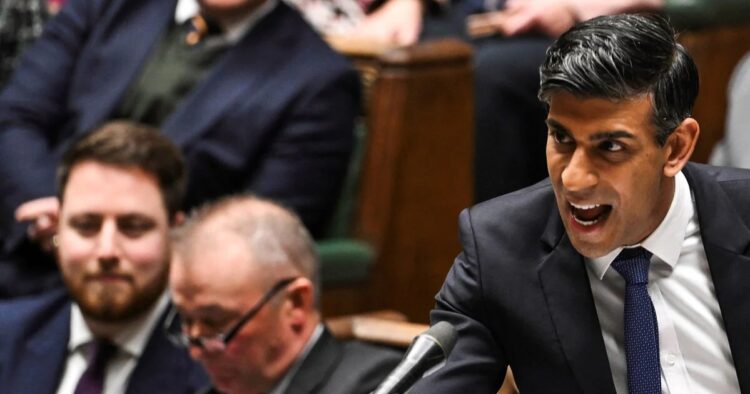In a crucial test of leadership, UK Prime Minister Rishi Sunak successfully navigated a parliamentary vote on his contentious plan to send migrants to Rwanda. The plan, outlined in the Safety of Rwanda (Asylum and Immigration) Bill, has been a focal point of Sunak’s political strategy as the country approaches the next general election later this year.
Right-wing rebels within Sunak’s Conservative party had initially threatened to thwart the bill, but they eventually backed down. The government secured a comfortable victory with 320 votes in favor and 276 against, allowing Sunak to maintain his authority within the faction-ridden party.
The bill emerged as a response to a UK Supreme Court ruling last year that deemed the deportation of asylum seekers to Rwanda illegal under international law. If passed, the legislation would designate Rwanda as a safe third country, granting UK ministers the power to bypass certain international and British human rights laws.
While the bill cleared the House of Commons, it still needs approval from the unelected House of Lords before becoming law. The government lacks a majority in the Lords, setting the stage for further scrutiny and potential amendments.
Challenges and Public Perception
The bill has faced criticism from various quarters, with opponents labeling it a “farce” and a “gimmick.” Political analysts suggest that the public perception of the government’s handling of immigration remains negative, and real change may only be noticed when the proposed measures are implemented.
Chris Hopkins, political research director at polling firm Savanta, emphasized the deep-rooted public perception of government incompetence on immigration. The proposed legislation has highlighted internal divisions within the Conservative Party, which may impact its credibility on the issue.
Although the bill cleared the Commons, it still faces hurdles in the House of Lords, where members are expected to scrutinize and possibly amend the proposals. Legal challenges could further delay the process, contributing to what has been dubbed a “farce” by the Labour party.
London has already committed £240 million to Kigali as part of the plan, announced by former Prime Minister Boris Johnson in April 2022. Sunak aims to reduce regular migration and deter asylum seekers from crossing the English Channel in small boats.
The bill has reignited internal divisions within the Conservative Party, reminiscent of the Brexit-related wranglings following the 2016 EU referendum. Despite pressure from rebels to strengthen the bill, Sunak held firm to avoid potential scuttling by moderate party members.
In an attempt to ease dissent, Sunak’s government announced plans to hire new judges for additional court sittings to expedite cases. The “illegal migration minister” hinted at empowering ministers to disregard last-minute injunctions from the European Court of Human Rights.
As the political saga continues, the fate of the Rwanda migration plan remains uncertain, with potential legal and political challenges ahead.
















Comments